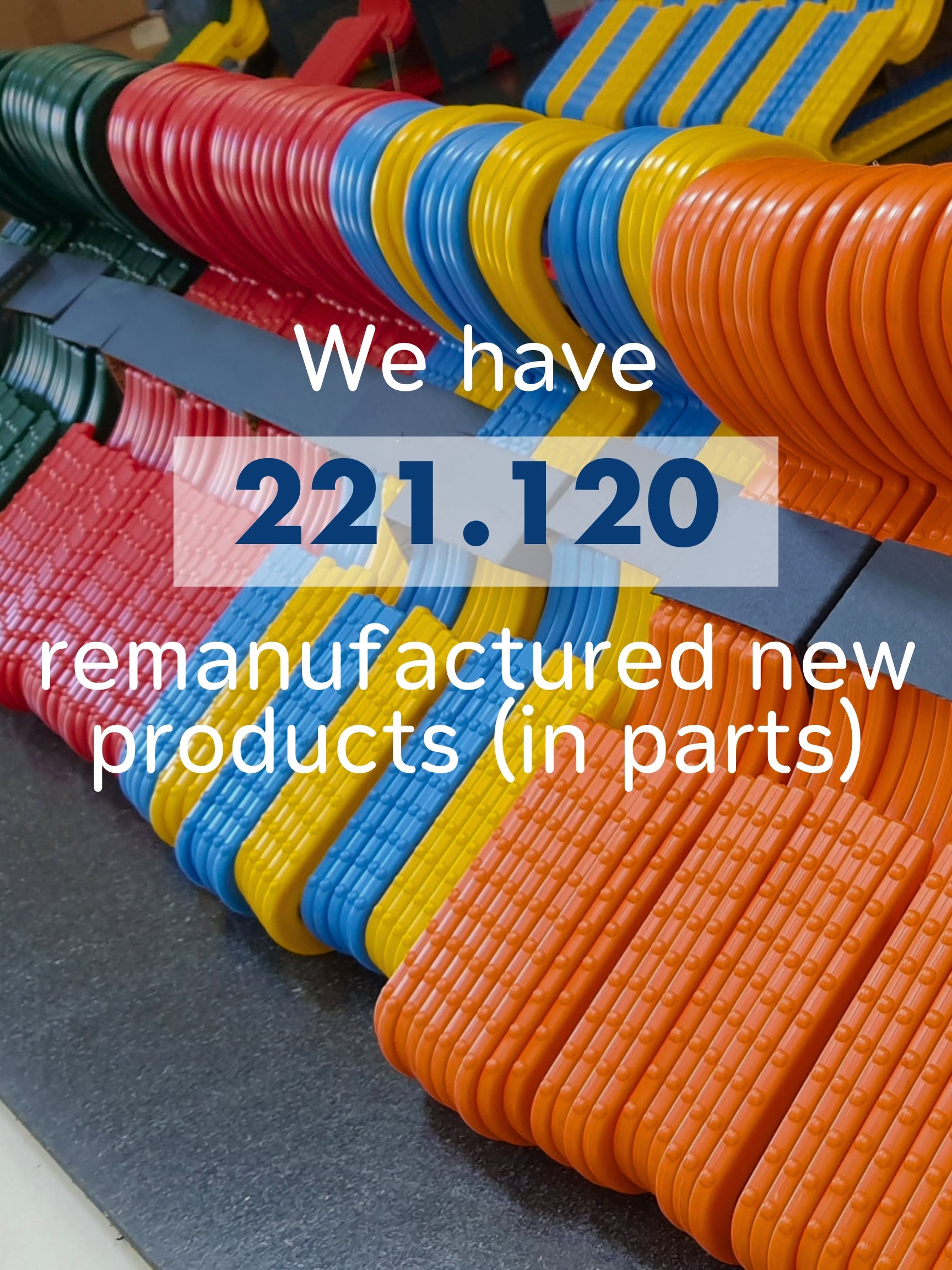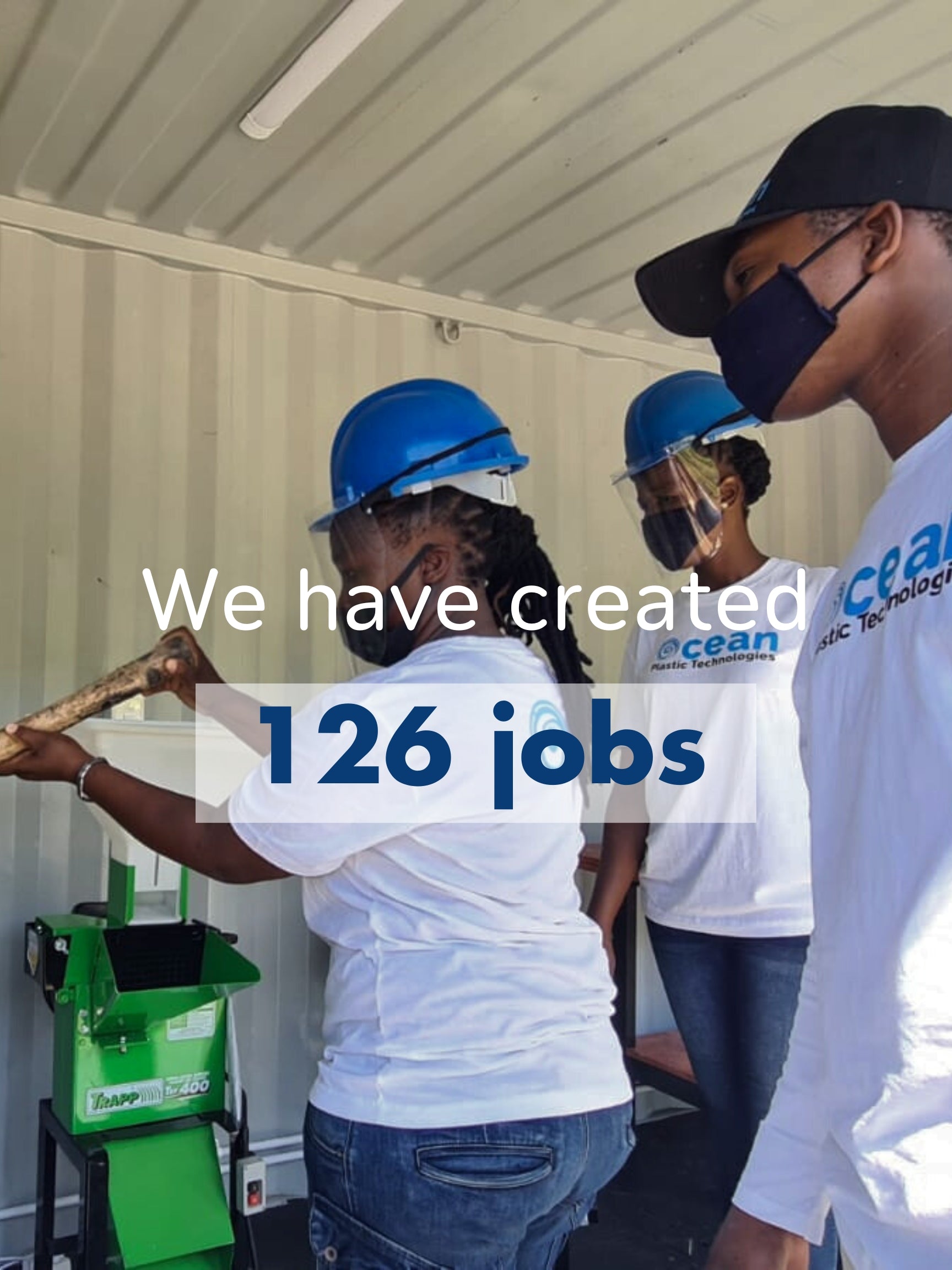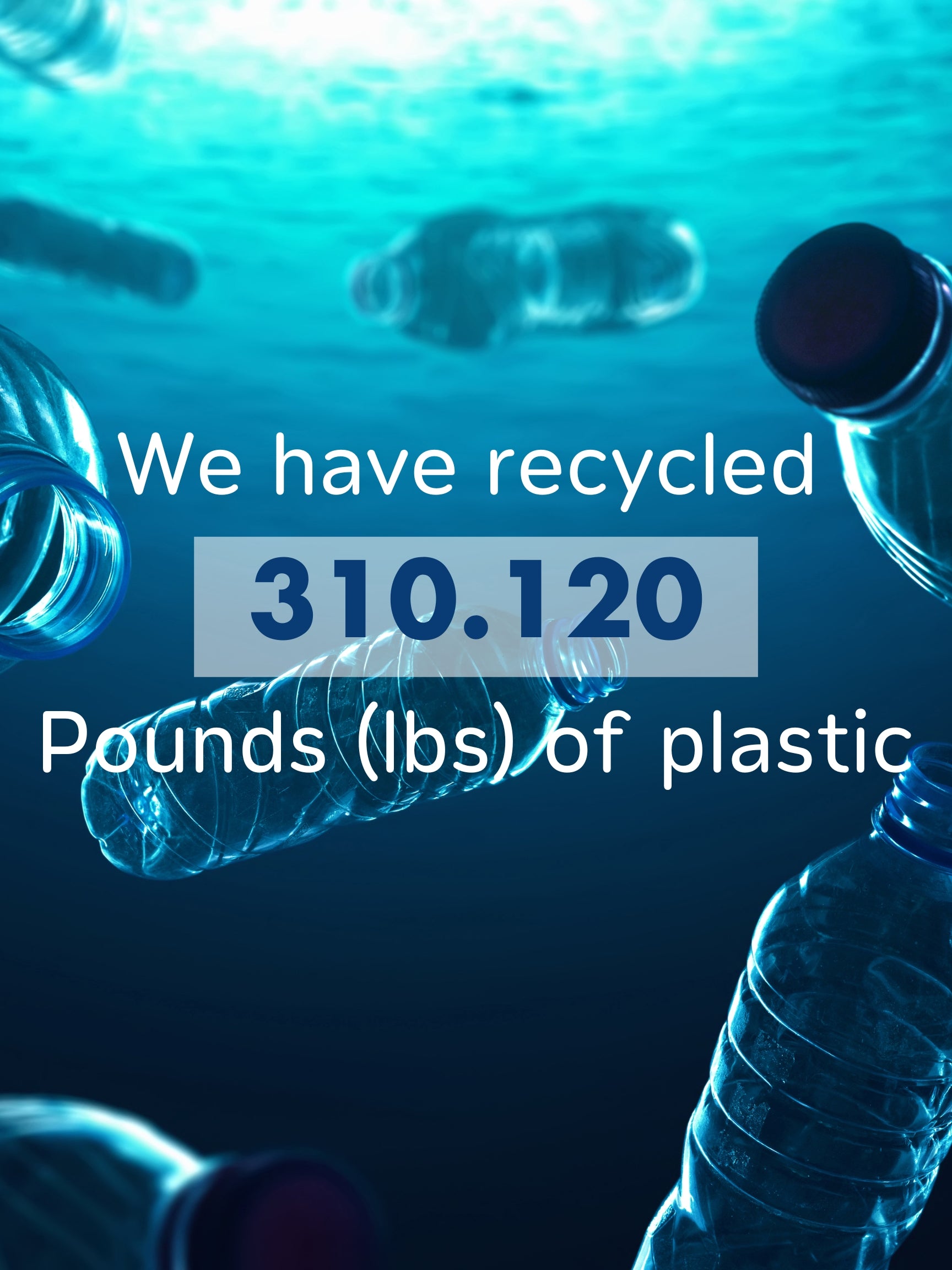our people and planet impact so far
eco-friendly by design: what our hangers are made from
Each hanger color is determined by the plastic collected. Each breakdown below is for batch #3 which includes all hangers purchased in 2025.









types of recycled plastic
-
Almost every single color of our hangers uses 5 types of recycled plastic: ocean bound, beach & estuary, post-consumer, ocean plastic, and post-commercial.
Let’s explore what those mean.
-
beach & estuary plastic
this is plastic that is already polluting coastlines and river mouths. It is collected before tides or currents pull it out to sea. Not only is it preventing ocean plastic but cleanup at this point directly protects ecosystems.
-
ocean bound plastic
this type of waste is within 50 km of a shoreline and likely to end up in the ocean if not collected at this point.
-
ocean plastic
this type of plastic has already made its way into the ocean and been recovered from marine environments. It is the hardest to clean and usually the most degraded but still salvageable.
-
post consumer plastic
PC has already been used by consumers. This is what we recycled: water bottles, food containers, wrappers and more. This is what we throw into the blue bins with the best of intentions.
-
post commerical plastic
this is waste from commercial operations before it ever reaches consumers. Think unused packaging or excess materials.
so where, and who, does the plastic come from?
First, we must acknowledge the recycling system in the United States is broken. Even before China stopped taking our garbage, it was broken. And the reasons are because we use too much and recycling it is not profitable.
It’s not your fault, or my fault. From as early as 1992, they knew recycling was never going to work. So here we are.
The thing is, the United States is not the only country with a plastic problem. It’s a global issue that coastal countries and communities feel the effects of the most.
Each hanger color is made not only with you and your individuality in mind, but also based on the unique recycled plastic composition of each hanger.
Four Micro Recycling Pods (MRPs) are responsible for the plastic collected for 2025's batch #3.
Umgababa
Mzamo, Thulisile, and Nonhlanhla form the team responsible for managing and operating our plant in Umgababa through their business, Waste WorX. The enterprise employs an additional 3 people and provides income for 7 grandmothers collaborating with a network of over 62 reclaimers in their community.
Shakas Kraal
Justin and Devan manage a micro-recycling plant in Shaka'skraal through their business, Dematrans. Their enterprise employs 7 people and provides income for 4 grandmothers working with a network of over 70 reclaimers in their community.
Richmond
Njabulo and his brother Ayand operate our plant in Richmond through their business, Waste Reduction and Recycling Technologies. Their company employs 4 people and provides income for 4 to 6 grandmothers collaborating with over 70 reclaimers in their community.
Willowfountain
Phelile and Noxipho lead the operational team at the Wilowfonten plant, where their business, Women on Waste, employs 5 people and provides income for 6 to 10 grandmothers.
MRPs are small boxcar-looking self-contained units that can be placed anywhere. They are run by local entrepreneurs and enable the collection and processing of plastic waste at the source.
OPT also provides tools, resources, and education to help those interested in running an MRP do so successfully. A single MRP running at 40% capacity can breakeven in less than 6 months.
By turning plastic waste into economic opportunity, our partners create local jobs, reduce pollution, and keep plastic out of rivers and oceans by reintegrating it into the supply chain.
Why South Africa? Why not work with an American supplier?
The beauty of the world we live in now is its globalism. Your coffee comes from South America, your cork from Portugal, your Olive Oil from Europe and so much more. I am a small U.S. business and work with other small U.S. businesses whenever possible but the team in South Africa was the best choice for everyone.
When I first had the idea for ( r e )x I interviewed several American processing facilities but none would use 100% recycled plastic and none were 100% transparent with me about what the makeup of the hangers would be.
I wanted a truly, 100% eco-friendly hanger — as eco-friendly as I could get. When I met with OPT, they informed me that MLP (multi-layer plastics) are not easily recyclable, but they have proven that difficult doesn’t mean impossible.
For full transparency, our manufacturing partners (Ocean Plastic Technologies) have put together the data on exactly what type of recycled plastic makes up your hanger.
From beach & ocean cleanups and local recycling efforts, in addition to using ocean plastics, our hangers are made from snack and dog food bags, discarded flip flops, soles of shoes, and much more.
As of 2025, OPT is opening a new facility in U.S.!



